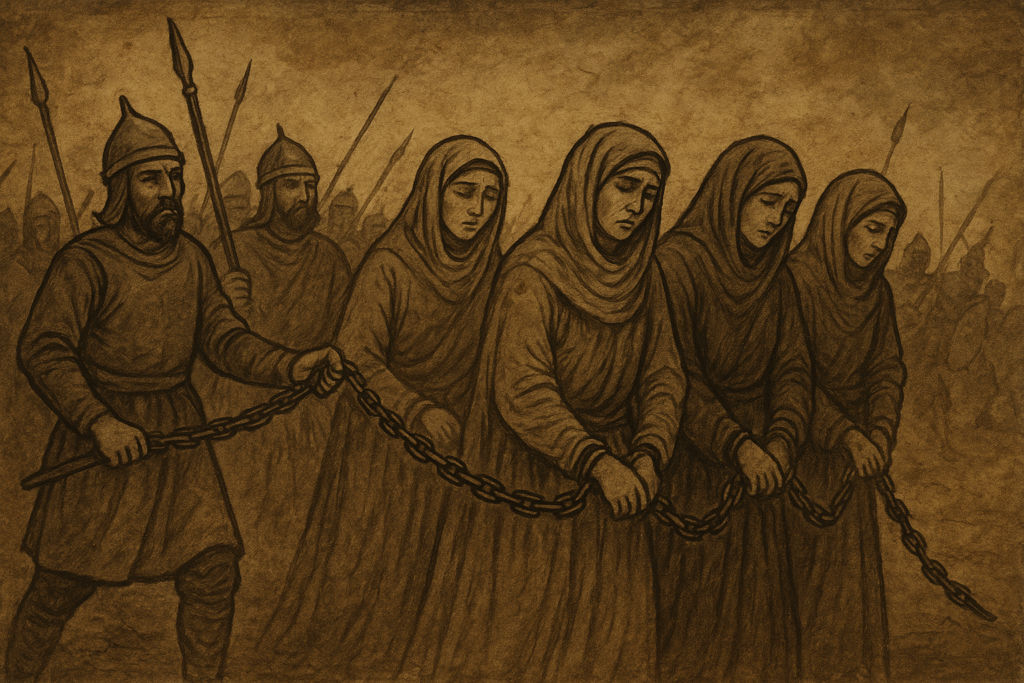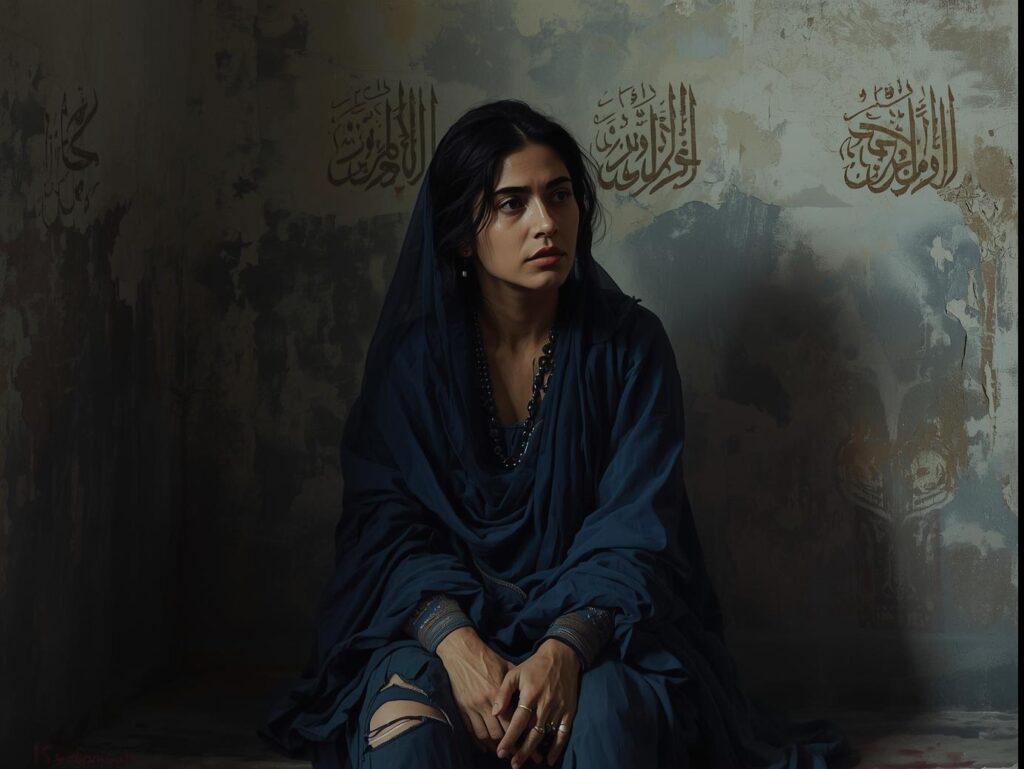Introduction
Sex slavery is one of the darkest chapters in human history. For centuries, women were treated as spoils of war, property, and tools for men’s desires. Many cultures, including ancient Rome, Persia, and India, practiced slavery. Islam, however, presents a unique case because slavery — especially sex slavery — was not only practiced but also sanctified in scripture.
The Qur’an, hadith, and early Islamic practices explicitly mention enslaved women, referred to as “those whom your right hands possess.” This phrase has been at the center of centuries of religious justification for sexual exploitation.
In today’s world, where human rights and women’s dignity are universally recognized, the idea that divine law once permitted sex slavery raises troubling questions. How can a religion claiming divine morality allow such practices? And why do many modern scholars remain silent about it?
This blog explores the roots of sex slavery in Islam, its scriptural foundation, its impact on women, and how it collides with modern human rights.
Sex Slavery in Islamic Scripture

The Qur’an makes several references to enslaved women, often pairing them with lawful wives. The phrase “those whom your right hands possess” appears in multiple verses.
- Qur’an 23:5-6 – “[The believers] guard their chastity, except from their wives or those their right hands possess, for indeed they are not to be blamed.”
- Qur’an 70:29-30 – “Those who guard their chastity, except from their wives or those their right hands possess, for then they are free from blame.”
These verses establish that sexual relations with enslaved women were permissible. Unlike wives, these women were not required to give consent, as they were considered property.
In addition, the Qur’an allowed men to acquire female captives during war. This was not framed as an unfortunate cultural practice but as divine law.
The Hadiths and Prophet’s Example
Islamic hadith literature, considered second only to the Qur’an in authority, contains detailed accounts of sex slavery.
- Sahih Muslim, Book 8, Hadith 3432 – Abu Sa’id al-Khudri reported: “The Messenger of Allah sent a military expedition to Awtas. They captured some women, but they hesitated to have relations with them because of their husbands. Then Allah revealed: ‘And women already married, except those whom your right hands possess’ (Qur’an 4:24). Thus, it became permissible for them to have sexual relations with those women.”
This narration shows that even married women, if captured, could be sexually enslaved. Their prior marriages were annulled by their captivity.
- Sunan Abu Dawud, Book 11, Hadith 2150 – “Do not practice coitus interruptus with captive women, for each soul is already predestined.”
This indicates that Muslim men frequently used captive women for sexual purposes, and the Prophet addressed their concerns about pregnancies.
The Prophet himself had concubines, including Maria al-Qibtiyya, an Egyptian slave gifted to him. Her relationship with Muhammad was not a marriage but a master-slave arrangement.

“Those Whom Your Right Hands Possess” Explained
The phrase “those your right hands possess” is a euphemism for slaves, especially women taken in war. These women were considered lawful for sexual use without marriage. They were not wives, did not have the same rights as wives, and could be bought, sold, or gifted.
Islamic jurists across centuries unanimously upheld this interpretation. Some even developed detailed rules:
- A Muslim man could have unlimited female slaves, unlike wives (limited to four).
- Enslaved women did not require a marriage contract.
- Consent was irrelevant because ownership was considered sufficient justification.
This normalization of sex slavery was not a minor issue — it was central to Islamic law for over a thousand years.
Early Islamic History and Sex Slavery
From the earliest battles of Islam, women were captured as war booty.
After the Battle of Hunayn, thousands of women and children were enslaved. Historical records show that women were divided among fighters as spoils. The Prophet himself distributed women to his companions and kept some for himself.
The practice continued under the Caliphs. The Umayyad and Abbasid empires maintained vast harems of enslaved women. Many rulers owned hundreds, sometimes thousands, of concubines.
These women were not only sexual partners but also symbols of power and wealth. Some concubines rose to influence, but the majority lived lives of abuse and silence.
Silence in Modern Discourse
In the modern world, slavery has been abolished everywhere. Yet Islamic scripture has never been reformed to reject sex slavery outright. Instead, most scholars adopt one of three approaches:
- Silence – Many clerics simply avoid discussing the subject.
- Justification – Some argue that slavery was “better” under Islam than in other societies, claiming enslaved women were treated with kindness.
- Deflection – Apologists argue that these verses are “historical” but rarely admit they are morally indefensible today.
This silence has consequences. Extremist groups like ISIS revived sexual slavery, explicitly quoting the Qur’an and hadith to justify capturing Yazidi women in Iraq. Their actions shocked the world, but from their perspective, they were only following scripture.
The Human Rights Perspective Sex Slavery
From a human rights standpoint, sex slavery is one of the gravest crimes against humanity. It strips women of autonomy, dignity, and consent.
International law, including the Universal Declaration of Human Rights (1948), condemns slavery in all forms. Article 4 clearly states: “No one shall be held in slavery or servitude; slavery and the slave trade shall be prohibited in all their forms.”
The Convention on the Elimination of All Forms of Discrimination Against Women (CEDAW) further affirms women’s right to equality and protection from exploitation.
By these standards, the Qur’anic approval of sex slavery cannot be reconciled with modern ethics. This creates a moral crisis for believers who seek to uphold both faith and human rights.

Modern Implications
Although legal slavery has been abolished, the mindset lingers. In some conservative circles, clerics still defend slavery as a theoretical possibility if an Islamic caliphate were restored.
For example, in Saudi Arabia, slavery was abolished only in 1962. In Mauritania, it persisted until 1981, and reports of modern slavery still emerge.
The most chilling example in recent years was ISIS, which openly sold women in slave markets, publishing price lists and justifying it with scripture. Survivors have testified about the horrors of systematic rape, abuse, and indoctrination.
These events remind us that the danger is not only historical but also real when religion is used to justify oppression.
The Struggle for Truth
Speaking about sex slavery in Islam is risky. In many Muslim-majority countries, questioning scripture is considered blasphemy — a crime that can lead to prison or even death.
Yet voices of courage continue to emerge. Ex-Muslims, women’s rights activists, and reformists are bringing attention to these issues. Their work challenges the narrative that Islam is beyond criticism.
The struggle is not only about exposing the past but also about protecting the future. Recognizing the injustice of sex slavery in scripture is a step toward rejecting harmful traditions and building a society based on equality and dignity.
Conclusion
Sex slavery in Islam is not a myth, nor a misinterpretation. It is written in scripture, practiced in history, and justified by scholars. But in the light of modern values, it is indefensible.
Today, humanity recognizes that every woman deserves freedom, dignity, and consent. No divine command can excuse the violation of these rights.
To remain silent about sex slavery is to allow injustice to persist in the shadows. By speaking about it, we affirm our commitment to truth and to the humanity of every woman who has ever suffered under these laws.
The past cannot be changed, but the future can be. Rejecting sex slavery — in all its forms — is a necessary step toward justice, equality, and real human rights.
My Journey from Dark to Light

